The only thing wrong is that you didn't come to your senses sooner and realize you were more valuable than he ever knew!! Get out and don't look back!!
My Husband Loved Showing Me Off in Skimpy Bikinis—Until I Found His Nasty Secret
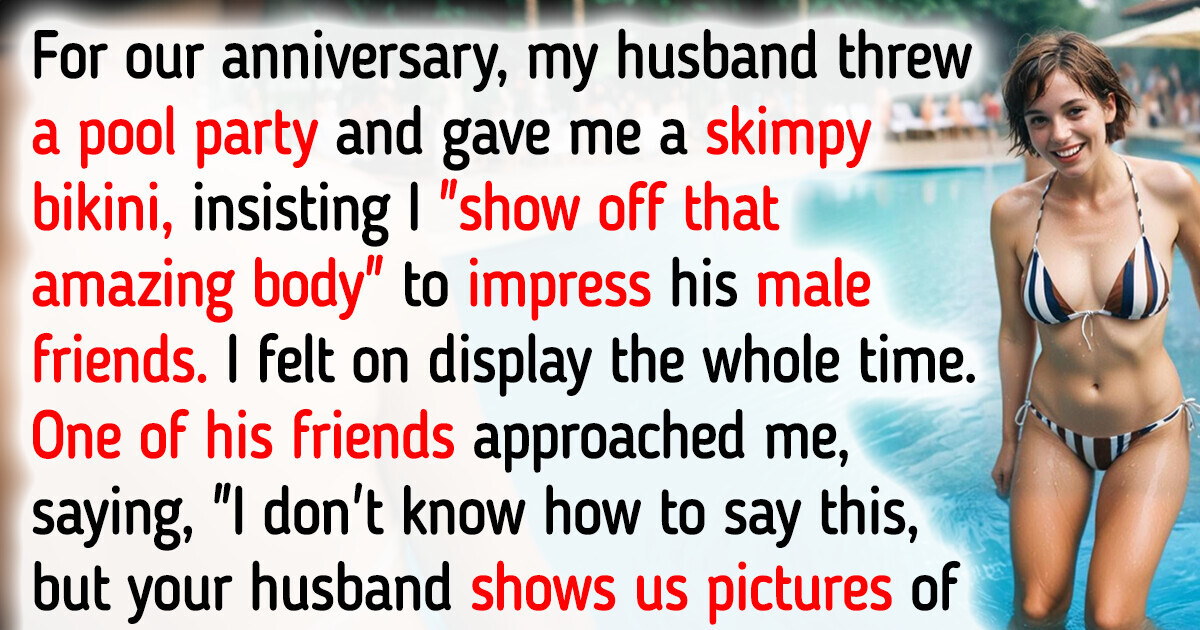
Today, we’re delving into a deeply personal and troubling story that has come to our attention through a heartfelt letter from one of our readers. This article addresses a situation that, unfortunately, many individuals may find familiar — a relationship marred by objectification, betrayal, and emotional manipulation.
Her story:

Madison, the pool party incident was not just about a skimpy bikini.
It was about your husband Mark disregarding your comfort and dignity for his own ego. When you slipped and fell, his reaction revealed his true priorities — his image mattered more than your well-being. This moment was a glaring red flag, showing how little he valued you as a person rather than an object to show off. His anger at you for “ruining his party” when you were hurt and embarrassed is inexcusable and shows a shocking lack of empathy and care.
This incident, while deeply upsetting, serves as a crucial turning point in your relationship, forcing you to confront the underlying issues that have been building over time. It’s important to recognize that this behavior didn’t occur in isolation — it’s likely the culmination of a series of smaller disrespects and boundary violations that you may have overlooked or rationalized in the past.
The public nature of this humiliation adds another layer of hurt, as it not only affected your relationship with Mark, but also potentially impacted your social standing and self-esteem in front of others. Your feelings of mortification are entirely understandable, and it’s crucial to acknowledge the emotional toll this event has taken on you.
Learning about Mark’s history of objectifying not just you, but all his past partners, must have been devastating.

The revelation that he keeps a file of women’s photos labeled “My Trophies” is deeply disturbing. This behavior shows a fundamental lack of respect for women as human beings. It reduces you and others to mere conquests, valued only for your appearance and ability to make others envious. The fact that he’s done this repeatedly demonstrates that this is not a momentary lapse in judgment, but a core aspect of how he views relationships.
This pattern of behavior suggests a deeply ingrained mindset that may be difficult, if not impossible, to change without serious intervention and self-reflection on Mark’s part. It’s crucial to understand that this is not a reflection on you or your worth — it speaks to Mark’s own insecurities and skewed perceptions of relationships and women.

The discovery of this long-standing behavior likely forces you to reevaluate your entire relationship, questioning the authenticity of the connection you thought you shared. It’s natural to feel a sense of betrayal and to wonder if any part of your relationship was genuinely based on mutual respect and love.
Your husband’s secret photo-taking and sharing of revealing pictures without your consent is a massive violation of trust.

This behavior is not just disrespectful — it’s potentially illegal and certainly unethical. It shows a complete disregard for your privacy and bodily autonomy. The fact that he’s made his friends uncomfortable with this behavior indicates that even they recognize how wrong it is.
You deserve a partner who respects your boundaries and values your trust, not someone who exploits you for attention. This breach of trust extends beyond just your relationship with Mark — it affects your sense of safety and security in your own home and social circle.

The knowledge that intimate images of you may have been shared without your consent can lead to feelings of vulnerability and anxiety in social situations. It’s important to recognize that this is a form of emotional abuse, as it involves using intimate information or images to control or manipulate you. You may want to consider seeking legal advice about your options regarding these unauthorized images, as there may be steps you can take to protect yourself and your privacy moving forward.
Mark’s response that you should be “flattered” by this objectification is a classic example of gaslighting.

He’s attempting to twist his harmful behavior into something you should appreciate, invalidating your very real and justified feelings of hurt and betrayal. His comment about not minding if women aren’t the “sharpest tools in the shed” as long as they’re attractive is deeply insulting and reveals the shallow nature of how he views his partners. You are so much more than your appearance, and you deserve to be valued for your whole self.
This type of manipulation is insidious, as it’s designed to make you doubt your own perceptions and feelings. Over time, this kind of emotional manipulation can erode your self-esteem and make it harder for you to trust your own judgment. It’s crucial to recognize this behavior for what it is — an attempt to avoid taking responsibility for his actions and to maintain control over you.
By suggesting that you should feel flattered, Mark is trying to normalize his unacceptable behavior and shift the blame onto you for not appreciating it. This manipulative tactic is often used by abusers to keep their partners off-balance and questioning their own reactions.
You are absolutely not wrong for wanting to divorce Mark over this.

What you’ve described goes far beyond a single incident of humiliation — it reveals a pattern of objectification, disrespect, and emotional manipulation that has likely been present throughout your relationship. You deserve a partner who values you for your whole self, respects your boundaries, and prioritizes your well-being over their own ego.
Moving forward with divorce proceedings is a brave step towards reclaiming your dignity and worth. Remember, you are not a trophy to be shown off — you are a human being deserving of love, respect, and genuine partnership.

As you navigate this difficult period, it’s important to surround yourself with supportive friends and family who can affirm your worth and help you rebuild your self-esteem. Consider seeking professional help, such as therapy or counseling, to process the emotional impact of this experience and to develop strategies for healing and moving forward.
Trust your instincts and remember that choosing to leave a harmful relationship is an act of self-love and self-respect. Your future happiness and well-being are worth fighting for, and there is a life of dignity and genuine love waiting for you beyond this painful chapter.
While Madison’s story highlights the importance of recognizing unhealthy relationship patterns, it’s equally crucial to understand what makes a relationship thrive. In this companion article, experienced couples therapists reveal practical, everyday habits that can significantly strengthen your bond with your partner.
Comments
Related Reads
My Ex Cheated and Left Me, Then Had the Audacity to Ask for Help
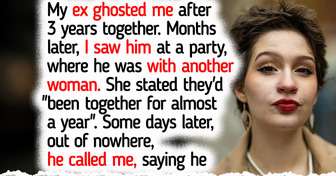
10 People Share Their “Met My Online Friend” Horror Stories

21 Curious Stories That Took Place in Cafes and Restaurants
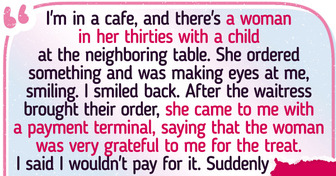
My Husband’s Daughter Thinks I Married Him for His Money, So I Revealed a Family Secret that Shocked Her

17 People Who Prove Marriage Guarantees You a Good Laugh Every Day
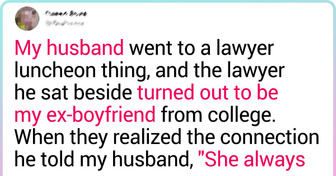
15 Real Life Events That Are Creepier Than a Movie

My Husband Caught Me Lying; He Blew Up and Took It Out on My Daughter Instead

12 Moments That Teach Us to Stay Kind, Even When Life Becomes Heavy
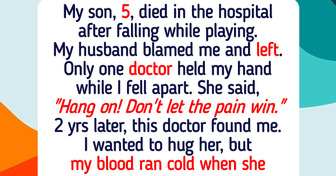
12 Moments Where Quiet Kindness Turned Strangers Into Family

I Was Denied Sick Leave Because My Boss Said It Was “Inconvenient Timing”
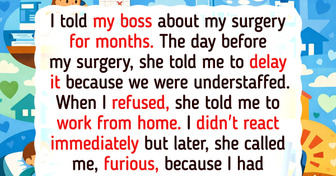
I Refuse to Forgive My Wife for What She Did to My Son

12 Life Moments Where Quiet Kindness Played the Main Role

